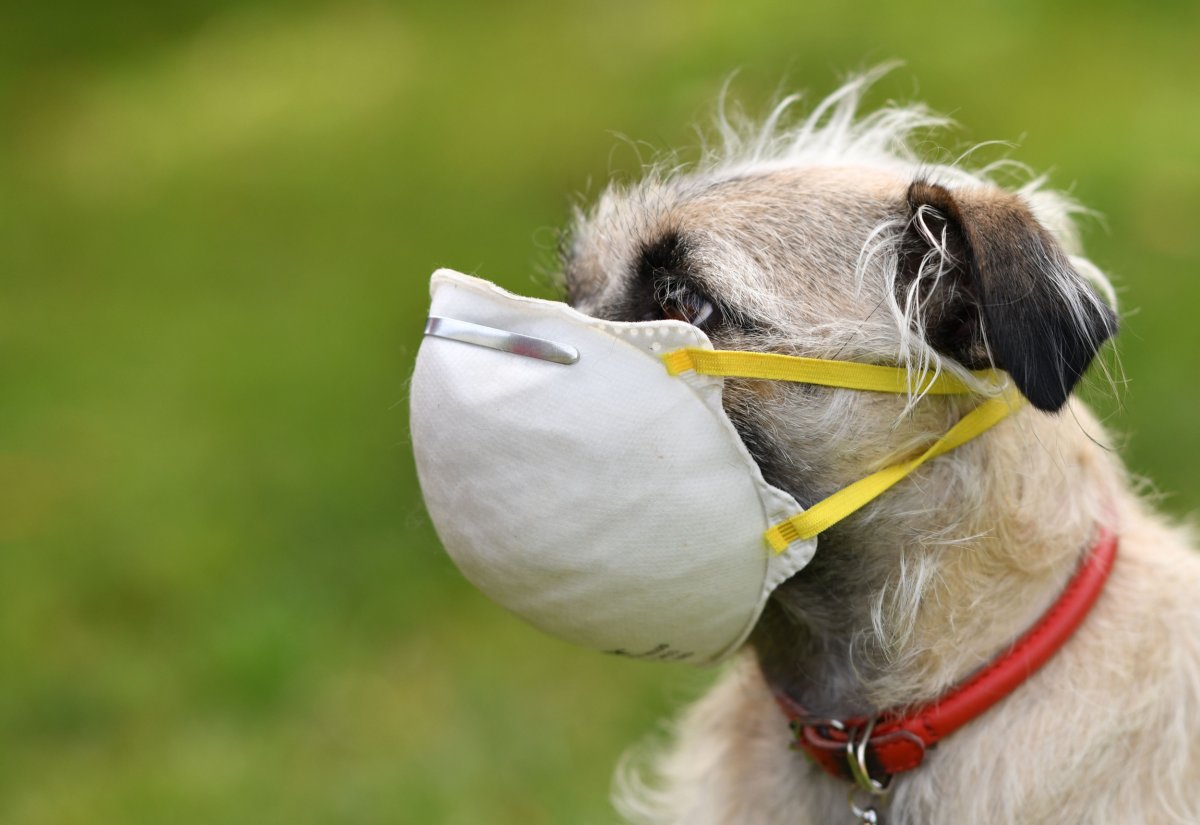A study conducted by researchers at the University of Washington discovered on Tuesday that 23 dogs had tested positive for COVID-19 antibodies.
According to press release issued by the Washington State Department of Agriculture, the department "received confirmation yesterday of a test showing evidence of exposure to SARS-CoV-2, the virus that causes COVID-19."
The press release noted that the group of dogs were sampled in the COVID-19 and Pets Study, which was conducted by the Washington Animal Disease Diagnostic Laboratory at Washington State University's Center for One Health Research.
"In all, 23 samples tested positive for antibodies to SARS-CoV-2, and while these are the first cases of a pet testing positive in Washington, they are not the first in the U.S., as there have been numerous reports nationally of companion animals testing positive for SARS-CoV-2," it read.
According to the press release, the Washington Animal Disease Diagnostic Laboratory (WADDL) informed the state's agriculture department earlier this month that COVID-19 antibodies were discovered in samples obtained for the study, which indicated to researchers that the dogs had been exposed to the novel virus.
Shortly after the antibodies were discovered, the samples were sent to the U.S. Department of Agriculture (USDA) National Veterinary Service Laboratory, "which verified WADDL's results and provided the confirmation" to the state's agriculture department.
Washington state veterinarian Dr. Brian Joseph stated in the press release that the discovery of COVID-19 antibodies in the dogs "are not a surprise given the other cases reported across the country."

Dr. Peter Rabinowitz, Director of the UW Center for One Health Research and Principal Investigator for the COVID and Pets Study said in a press statement: "These results indicate that COVID-infected humans are able to transmit the virus to animals living in the same household. While we don't have evidence that this poses a risk to other humans, we are recommending that COVID-infected persons take steps to reduce the risk of infecting their pets."
"We are continuing this study as the human vaccine rollout takes place, and will be seeing whether any change in household transmission occurs," Rabinowitz added.
In an email sent to Newsweek, Rabinowitz said that the study has sampled around 50 households with dogs. "Therefore it seems that quite a lot of human to dog transmission is taking place."
"The owners of the dogs are reporting that often the dogs had shown signs of illness, so we believe that dogs can get sick from COVID," Rabinowitz added.
Hector Castor, a spokesperson for the Washington State Department of Agriculture informed Newsweek that "it's important to note that these dogs showed signs of exposure to the virus, but that does not mean they had the virus."
"Mainly, we wanted to alert pet owners so they could take precautions if they test positive for COVID-19," Castor further said.
As the press release noted, these 23 dogs are not the first group of animals that tested positive for the novel coronavirus.
According to the Centers for Disease Control and Prevention (CDC), "a small number of pet cats and dogs have been reported to be infected," with COVID-19 across several different countries. While several animals have tested positive for COVID-19, both the CDC and the USDA have stated that they have found no evidence showing that animals play a significant role in transmitting the virus to humans.
Newsweek, in partnership with NewsGuard, is dedicated to providing accurate and verifiable vaccine and health information. With NewsGuard's HealthGuard browser extension, users can verify if a website is a trustworthy source of health information. Visit the Newsweek VaxFacts website to learn more and to download the HealthGuard browser extension.
Uncommon Knowledge
Newsweek is committed to challenging conventional wisdom and finding connections in the search for common ground.
Newsweek is committed to challenging conventional wisdom and finding connections in the search for common ground.
About the writer
Matthew Impelli is a Newsweek staff writer based in New York. His focus is reporting social issues and crime. In ... Read more
To read how Newsweek uses AI as a newsroom tool, Click here.








